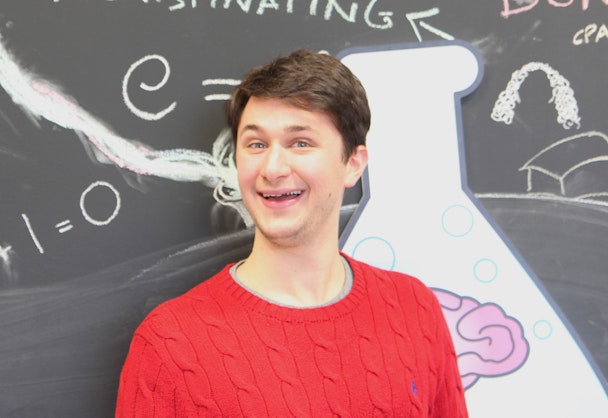The sums add up for Brainlabs: Q&A with Daniel Gilbert
The Drum Network meets Daniel Gilbert, founder of Brainlabs, and learns more about the agency’s mathematical approach to media buying…


Brainlabs' founder Daniel Gilbert.
What inspired you to found Brainlabs in 2012?
Prior to starting the business, I was working at Google and dealing with a lot of large clients and agencies who kept coming up against the same challenge: they had huge amounts of customer data that they really didn’t know what to do with. I could see that there was still a massive gulf, even within Google, between the engineering and programming departments of most organisations and their marketing departments. I saw an opportunity to help businesses harness the power of that data more effectively and bring those two knowledge hubs – the programmers and the marketers – closer together.
The market hadn’t caught up – it was still being run primarily by traditional ‘marketeers’. We set out to close that gap, so I initially hired people that were smart mathematicians, programmers and scientists and then added on the paid search, paid social and programmatic experts afterwards. Coming at the industry’s challenges from that angle has led to a lot of the interesting work that we’ve done since.
What’s the problem with ‘traditional’ marketing agencies handling digital media buying?
The digital media market has evolved too quickly for traditional marketers to keep up. Over a relatively short period, Google has introduced a number of new features that have changed the industry completely. With every addition of every new feature, we’re talking about access to new data points, adding to the complexity.
Even a simple account that we handle today has something like 10,000 keywords to consider. We’ve worked out that there are literally a trillion possibilities every single day of how you could manage that campaign. So the whole field has shifted from an entirely marketing-driven strategic exercise to something that requires a better understanding of data and automation. Human beings simply can’t manage that level of complexity themselves without the back-up of strong analysis and computational power.
How did you communicate your new offering to the market?
To be honest, at first, we didn’t. We ‘bootstrapped’ the business into existence with credit card debt, basing ourselves initially in my parents’ attic, then my living room, then an office in Kilburn that more closely resembled a dungeon! We didn’t move into our first ‘proper’ office until eighteen months ago.
To date, we’ve largely made people aware of our work to date by releasing case studies and winning awards. We won two awards for building the first ever real-time bidding platform for Search (The Digitals 2014 and The European Search Awards 2015 respectively) and The Best Small PPC agency in Europe (The European Search Awards 2015).
We started the business as two people and even as recently as eighteen months ago, we were still only eight people. Over the past year and a half though we’ve gone from eight to 47, with ten more arriving soon, which is pretty explosive growth. We still don’t have a dedicated outbound sales team as such, but the market is starting to hear about what we are doing and it seems to be resonating.
Bringing in the right people at the right time is always challenging but it’s beginning to become a bit easier as more people in the industry are learning about the Brainlabs way of doing things.
What do you consider to be the key moments for the business so far?
Winning the Which? Magazine account was a real turning point for us. Not simply because it was our biggest deal yet at that point but also because of the confidence we gained as a business from going through a complex 17-agency pitch process and coming out on top in the end. Given the nature of what Which? does, reviewing, analysing and ranking products and services, being selected by that organisation’s choice of agency is quite an endorsement.
We didn’t realise it at the time, but we were up against a ‘who’s who’ of the performance marketing industry. We didn’t know much about what any of the other agencies offered as none of us came from agency backgrounds. We were focused on doing our own thing and went in to Which? without any expectations, so to get through each successive round of the process and eventually win was a real confidence boost that we were on the right track as a business.
The feedback we received was that we were genuinely different to the other players out there, so that gave us the belief we needed to go on and win other big clients like UNICEF, Deliveroo (if you haven’t heard of them yet, you soon will) and Dominos Pizza.
Dominos has been a fantastic client to work with in terms of the data that they are routinely capturing as part of their business model. There’s some fascinating stuff on consumer behaviour coming out of our work with them. At this stage, Dominos is basically a tech business that happens to sell pizza.
Has the business model changed at all since inception of the business?
Not the model itself, but our offering has evolved. In the beginning, we were laser-focused on doing ‘paid search’ exclusively. Over the last 18 months, we’ve realised that all of the reasons we achieving great results in paid search were also applicable to paid social and programmatic. All the same processes, systems, logic and smart people come into play. Those areas have shown massive growth for us to the extent that paid social and programmatic now account for more than 40 per cent of our business. That figure will rise beyond the 50 per cent mark next year for sure.

